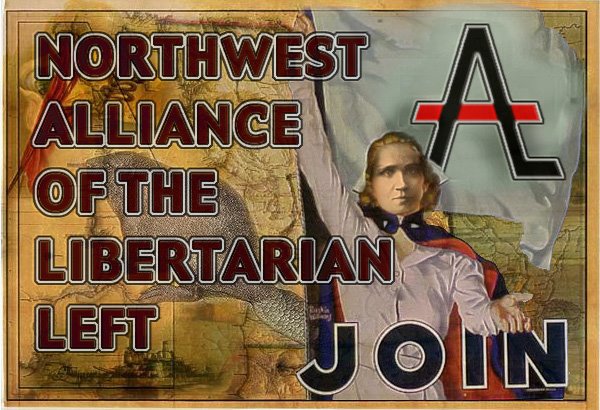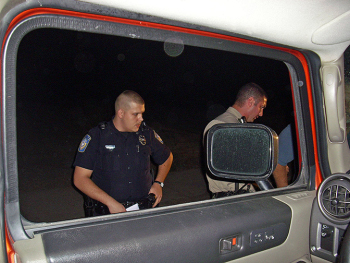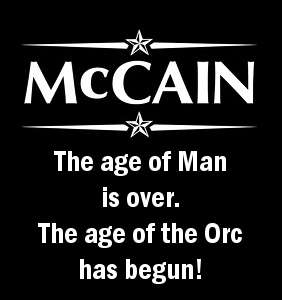Professional courtesy, part 2: thugs on patrol
Here’s what I said back in April about what professional courtesy
means when it comes to law enforcers:
The term
professional courtesycomes from the traditions of medicine: many doctors will not charge money when they treat another doctor’s immediate family. When doctors talk aboutprofessional courtesythey are talking about a very old system of mutual aid in which one doctor agrees to do a favor for another, at her own expense, for the sake of collegiality, out of concern for professional ethics (to offer doctors an alternative to having their own family as patients), and because she can count on getting similar services in return should she ever need them.But when the Gangsters in Blue start talking about
professional courtesy,they’re talking about something quite different: afavordone for a fellow gang member at no personal expense, with the bill sent to unwilling taxpayers who must pick up the tab for the roads and parking; and afavordone in order insulate the gangsters and their immediate family from any kind of ethical accountability to the unwilling victims that they sanctimoniously insist onserving and protecting.Professional courtesyin medicine means reciprocity in co-operative mutual aid in healing sick people;professional courtesyin government policing means reciprocity in a conspiracy to make sure that any cop can do just about anything she wants by way of free-riding, disruptive, dangerous or criminal treatment of innocent third parties, with complete impunity, and the rest of us will get the bill for it and afuck you, civilianif we don’t like it.
It turns out that the Virginia State Patrol is stretched thin
right now: money is tight because of the state’s economic and budgetary troubles,
and — as a result — they’ve delayed a lot of new hiring and they’re having trouble getting up enough active cops for adding special agents to the Joint Terrorism Task forces, creating a Homeland Security Division and dedicating more troopers to investigate illegal firearms purchases at gun shows.
(Well, good. Three cheers for the state’s budgetary troubles, if they make for a financial roadblock against ridiculous gun grabs and Stasi statism.) But now check out what the coppers at Officer.com have to say about the Virginia State Patrol in the comments:
Posted by JJS (09/24/08 – 10:41 AM)
VSP has a bad reputation for writing tickets to other officers.
How dare they? Cops deserve to be treated more considerately than everybody else when they are stopped by other cops.
Posted by People Are Sheep [sic!] in Maryland (09/24/08 – 11:19 AM)
VSP Anti-Courtesy
For years, I have heard rumors about VSP stopping and citing police officers both on and off duty. Whatever the circumstance, it is not in the professional interest (and sometimes legal interest) for ANY police officer/trooper to stop (or attempt to stop) any on duty marked police vehicle. In some states, it’s unlawful to do so … and in some states, an arrest warrant or state’s attorney consultation is required BEFORE a stop is made and charges are cited. Off duty officers/troopers should use common sense when driving. Period. On the same token, on duty officers/troopers should use common sense and professional courtesy when it appropriate. . . .
In nearly two decades as a police officer, I have stopped many, many off duty police officers for traffic violations. During those times, I have issued no tickets and made no arrests. There are alternatives to citing and arresting off duty cops: verbal warning, calling their supervisor or just assisting the officer reach their destination safely. All options are, of course, dependent upon the violation at hand.
Remember, we are all that we have out there on the street … each other. The legendary conversation between an overzealous on duty officer and the off duty officer during a traffic stop bears truth: After signing the ticket, the off duty officer says,
Just remember, I could be your closest backup out here.
In other words, this sanctimonious server and protector has spent the past two decades completely abdicating his supposed professional responsibilities when they involved holding a fellow cop accountable for endangering the safety of the people he and they are supposedly hired to protect. Because he thinks it’s important never to forget that some day he may need his gang brothers to get his back.
Posted by Harry in District of Columbia (09/24/08 – 04:09 PM)
VSP Anti-Courtesy an understatement
I can in contact with a vehicle that struck a fix object at 21st and Washington Circle NW Washington, D.C. The vehicle was an unmarked VSP vehicle occuppied by 4 VSP officer. All of them had been drinking. knowing what there fate would be if I’d taken a report I had them make a call and two other off duty VSP officer responded to my location, sober, and I allow all to leave. I figured it was up to them to explain to there supervisor the damage to the unmarked cruiser. Now if they had struck another vehicle civilian driver or pedestrian there would have been a different outcome.
Shortly after that I was driving southbound on Rt.29 in Nelson County, VA at 0300hrs and was stopped by a VSP for doing 67 in a 55. I never identified myself as a police officer, probably because I had FOP licence plate, and he never inquiried, and wrote me a speeding ticket. He never spoke a word.
A month later I stoped a civilain vehicle driven by a off duty VSP trooper for a traffic violation, he immediately produced ID and I told him to that a nice day.
VSP is really short on professional courtesy.
A Texas Highway Patrol enforcer defends the honor of his crew from the allegations of a Houston cop:
Posted by TXTroop in TEXAS (09/25/08 – 11:36 AM)
VA & TX
Let me first start off by saying that RICK G in Houston is an idiot. We DO NOT get uniformed officers out of their vehicles to stand on the side of the road. If this happens in Houston it is because Houston PD officers have a habit of holding their badges out the window when they are being stopped. Very UNPROFESSIONAL. As far as our stupid cowboy hats go, even the
hoodis affraid of theHATS. Now that the idiots comments have been addressed, if VA Troopers arewritingother officers, on or off duty shame on them! The only reason any state has a shortage of Troops is PAY. Troopers all over the Nation are reveered as thebestofficers in their state, they should be paid as such. Sounds like VA needs to up their pay and implement the DONT PUT COPS ON PAPER – TICKETS OR WARNING plan!!!
TXCOP
in the DFW area scratches their backs and expects them to scratch his:
Posted by TXCOP in DFW AREA, Texas (09/25/08 – 11:16 PM)
Wow sounds like Rick G. got really upset. Before I moved to Texas I was a LEO in Baltimore City, Md. The only contact I had with VSP was being stopped for speeding something like 80 in 60 or something its been a few years now. But the trooper (an older older officer) made me for a cop and after showing my ID he asked me to slow down and to cut him and his friends a break next time they visit the city for a Ravens or orioles game. Now on that same trip (enroute to visit family in Texas) I was stopped about 40 miles into Texas from arkansas on I 30 by a Texas State Trooper he pulled up next to me hit the alley light and motioned to me so of course I waved at him and continued driving after a minute he motioned again so i figured he wanted me stopped so I shook my head and slowed down he then proceeded to hit the red lights and stop me and the guy in front of me. So here I am the officer stopped between both of us he came to me first and I told him I’m a Leo and have a gun so that he would not be surprised. He asked me to stay with him while he finished the other stop and then he would let me be on my way. He wrote the other guy a citation came back wrote me a warning
to get his statand then I gave him a Uniform patch and was gone.
From a Virginia sheriff’s deputy:
Posted by VA Deputy (09/26/08 – 04:58 AM)
As for professional courtesey… I have worked for a PD and a S.O. and for all you out of town guys, not everyone in VA is into writing LEO’s… professional courtesey ia alive and well in the local jurisdictions… Too many people on the outside are trying to hang us on a daily basis for no reason, we shouldn’t be hanging ourselves. As long as you don’t come out of your vehicle swinging at me, you got a pass here… Stay Safe.
That’s As long as you don’t come out of your vehicle swinging at me and you wear the same gang colors I do,
of course. Those passes are not for mere civilians.
I should say that when I refer to cops as a street gang
or Gangsters in Blue or what have you, I’m not indulging in metaphor. I don’t mean that cops act kinda like gangsters (as if this were just a matter of personal vices or institutional failures); I mean that they are gangsters — that is the policing system operating successfully according to its normal function — that they are the organized hired muscle of the State, and that the outfit operates just like any other street gang in terms of their commitments, their attitudes, their practices, and their idea of professional ethics. And if you wonder why, it may help to ask yourself what kind of person, and what kind of outfit, you’d need to have for this kind of talk, and this notion of professional courtesy,
to make any kind of sense.



